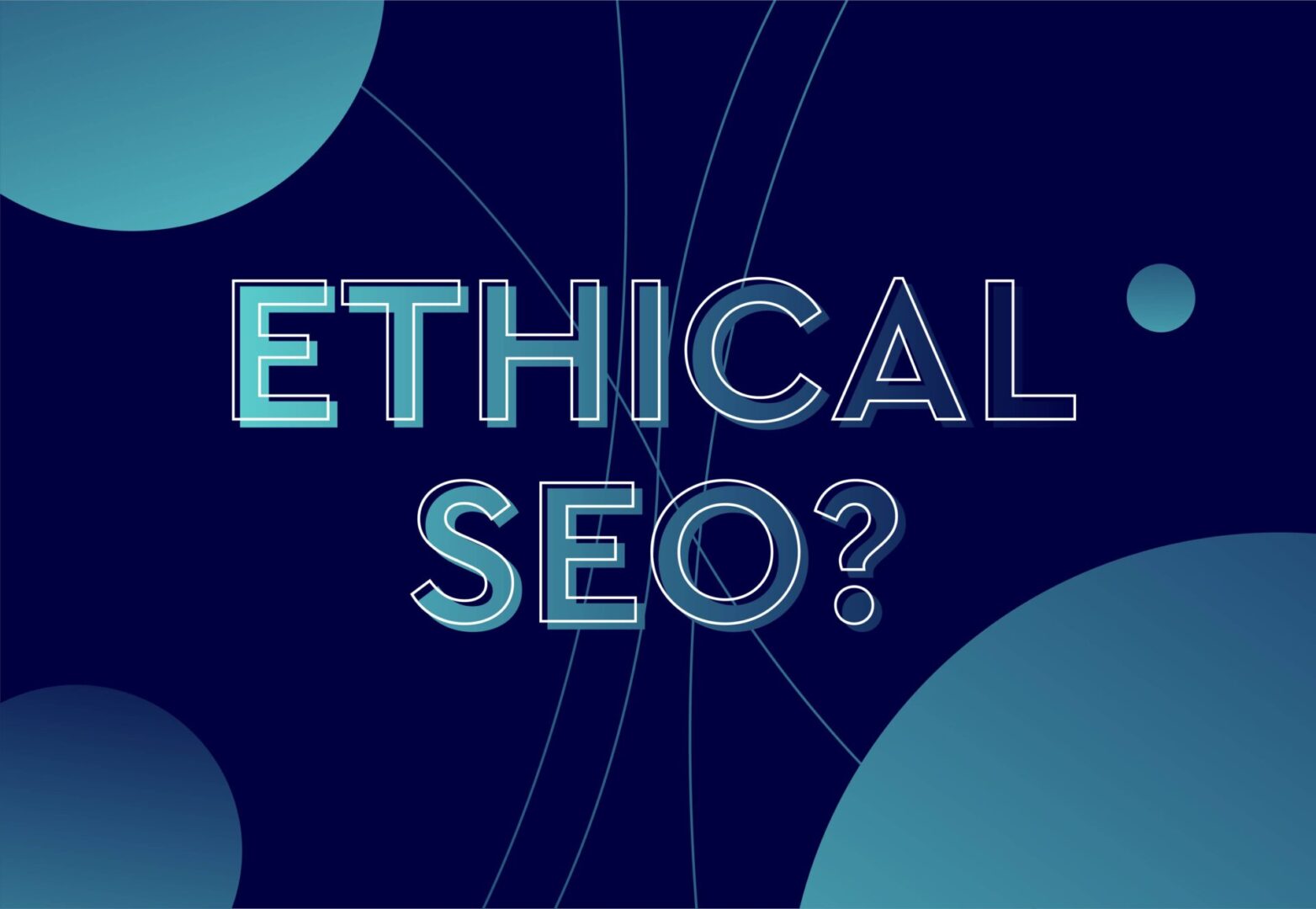While SEO is all about ranking high in search results and meeting your businesses’ KPIs, how you achieve those results matters. That’s where ethical SEO comes in. Where blackhat, whitehat, and even greyhat SEO practices are widespread, ethical SEO focuses on user experience and search engine guidelines.
In this guide, we’ll touch on the current definitions of ethical SEO, and why it’s more important than ever to create high-quality content that has earned organic rankings without manipulating the algorithm.
So let’s get into it.
So, what is ethical SEO and its considerations?
An ethical SEO strategy uses methods and techniques that search engines accept – with safe or shady practices hedging on whether Google guidelines are followed or broken.
This is also known as ‘white hat’ and ‘black hat’ tactics, with the former adhering to Google guidelines, and the latter actively going against them.
Examples of ‘black hat’ tactics include:
- Link schemes
- Plagiarising content
- Keyword stuffing
- Cloaking
These are unethical tactics that are implemented to ‘game the system and directly impact business results. Blackhat activity does come with hefty punishment, such as manual action from Google which can significantly harm your rankings, or remove you from the SERP itself.
However, ethical SEO not only spans white and black hat activity but has now been broadened to include non-traditional considerations.
We’ll touch on this in the next section.
Sustainability
Aside from the Google guidelines, ethical SEO also thinks about its impact on the wider world.
It might surprise you, but SEO activity at large actively contributes to carbon emissions through data storage, transfer, and processing power – with a web page producing 0.5 grams of CO2 per page view.
Green hosting can also help you reduce your carbon emissions as a whole. But as one of the primary aims of SEO is to boost page views and increase organic rankings, how can we carry out this activity ethically – with minimal impact on the people and planet around us?
Essentially, if you focus on creating more comprehensive, user-led content, your audience won’t have to click multiple pages to find their answers. In a similar vein, increasing site speed means users are less likely to reload the page.
Accessibility
With 24% of the UK population having a disability, their experience must be also considered in your SEO planning.

When carrying out website optimisations, take the time to consider whether they are compatible with screen readers. Other steps you can take include clear headings, the implementation of alt text and even subtitling videos or other visual assets.
From both an ethical and business perspective, accessibility is a crucial – but often overlooked – aspect of SEO. Including it means that everyone, regardless of disability, can use the web freely and easily.
Equality and diversity
SEO professionals should always think about whether they’re being inclusive and considerate of a wide spectrum of people, taking into account their views and experiences when creating content.
For example, do you use visual assets that only include people of a particular ethnicity? If you’re writing couple-led content, do you only include heterosexual couples – or do you feature LGBTQ+ people, too? For those with different gender identities, do you offer more options than just cisgender ones on your online forms?
As a whole, ethical SEO always aims to make minority search experiences more accessible and welcoming.
E-E-A-T
We often forget that the content we create can have an active influence on people’s decisions beyond their experience online.
So, for websites that promote “Your Money or Your Life” content – such as financial or medical practices – focusing on creating trustworthy and truthful posts is non-negotiable.
As Google pivots to more user and interest-led content, websites should take this into account. E-E-A-T, which stands for experience, expertise, authority, and trustworthiness, is becoming a major algorithmic factor for ranking. This means that websites must, in essence, show how they deliver accurate and fact-checked content for ethical purposes and business interests.
Citing your sources and adding author bios to your blog posts are two really simple ways you can get those E-A-T signals moving.
Ethical SEO methods and the benefits of being ethical

So, what are the SEO strategies that are accepted and considered ethical? Here’s what isn’t problematic in the SEO world:
- Focusing on the long-term: After all, this is the most sustainable way to maintain a solid ranking position
- Creating valuable and original content: Original content means you aren’t plagiarising the work of others, and valuable content remains user-focused.
- Natural link-building: Your priority should be link quality, not quantity.
- Effective keyword research: Instead of keyword stuffing, perform effective keyword research and optimise based on your findings.
Why choose good? There are lots of reasons…
You lower your risk of being penalised and facing legal repercussions
Steering clear of any kind of black hat behaviour or risky shortcuts means you’re unlikely to be penalised by Google. Sticking to what’s right keeps you in line with legal requirements, and you certainly don’t want action taken against you for trying to cut corners!
You’re able to maintain a good brand image and reputation
If you do get into any sort of trouble, it’s inevitable that users aren’t going to use your site as their go-to for info or services. So if you practice ethical SEO, your brand image is one of trust and expertise. If you happened to tarnish your reputation, you could lose out on valuable traffic and business.
You improve the experience for your users
If users have had a positive experience with your site, they’re likely to come back. You can be the ones providing the desired useful answers and have them return. As we know, a positive user experience can have great effects on your SEO, as it increases the amount of time on the page and decreases bounce rate.
You improve your web visibility
And of course, all of this ultimately adds up to improved web visibility. Strengthening your trust signals, positioning yourself as the go-to site for any information about your service, and being accessible to everyone will boost your rankings and your share of voice on the SERP.
Ethics are at the forefront of SEO
Essentially, the term “ethical SEO” refers to search engine optimisation techniques that follow Google policy while also considering the broader effects of SEO efforts on the environment and all Google search users.
It’s SEO that does good to create good – which certainly isn’t a bad thing.
If you’d like a bespoke SEO strategy created for your unique business – our experts can help.














